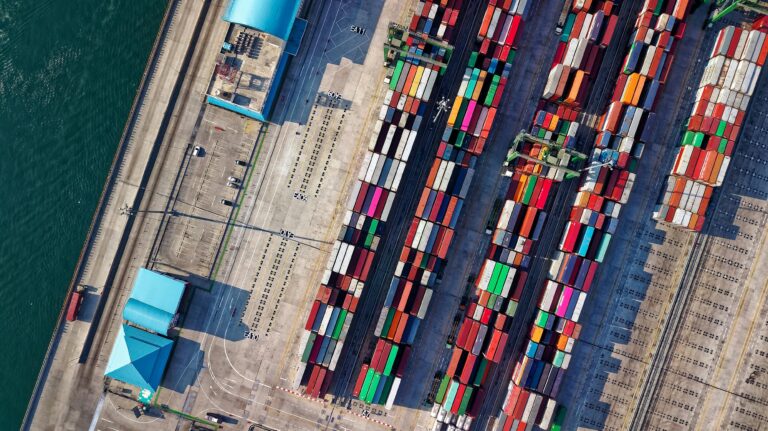We’re only halfway through the year, and the world is in turmoil. There is widespread social unrest in the United States and elsewhere, as America reels from a landmark racial event that has finally tipped the precarious balance of the tolerance scale. Meanwhile, Covid-19 has taken a solid grip almost in every corner of the planet. The economic prospects for the next 24 months or so are far from good. And we’ve only just past the six-month mark of 2020. What disaster might come next is anyone’s guess.
Covid-19. The microbe from the east has laid waste to the economic activity of the world, and the results are less than favorable. But the coronavirus outbreak has had an unexpected effect: millions of businesses have had the chance to press the pause button and reassess their practices.
Remote work, often frowned upon or discouraged altogether, has become the new norm for millions of workers. Many will be asked to return to their workplace when the danger is over, but a great majority will still enjoy the relative freedom of working from the comfort of their own homes.
This new employment paradigm has also cast new light on a predicament that has significant ramifications for both the company and its staff: Outsourcing vs in-sourcing.
This piece dissects the intricacies and repercussions of outsourcing vs in-sourcing, including its social and financial impact. The objective is to understand the difference between the insourcing definition of managed services and outsourcing.
While both these options are viable means to acquire talent with special skills – how it can impact an organization can vary widely. In fact, from the level of control to the cost involved, insourcing and outsourcing can completely alter the structure of your workplace.
With this in mind, we will also explore the social and economic factors that influence a company’s decision to choose either route and the main reasons for outsourcing.
Definition of Outsourcing
The word outsourcing is a portmanteau of the term ‘outside resourcing’. From a business perspective, the definition of outsourcing is quite simple. It is an agreement whereby a company hires one or more firms to work on its behalf. This could be for a single, specific, and short-term project (creating a software development solutions, for example), or on a more permanent basis (call center duties, payroll services, marketing services etc.) Outsourcing often involves the transfer of staff and company assets between one or more locations, sometimes internationally.
As you can see, the main difference between insourcing vs outsourcing is that – in the former, an employee will be your in-house staff. Whereas when outsourcing, you will be using their services on a contract basis.
The key syllable of outsourcing is out. When a company engages in an outsourcing process, it is looking outwards from itself. When outsourcing, you can choose to work with individual employees or an entire company itself.
Pros and Cons of Outside Talent
Pros:
- Increased profits for the outsourcing company, as outsourcing often involves hiring dedicated teams in countries where pay and conditions are substantially inferior to western standards
- Better job prospects for developing countries
- Enhanced international relations and expanded supply chains
Cons:
- Reduced work opportunities for local jobseekers, as the work is done elsewhere, often in a different country
- Lack of transparency and potential loss of brand loyalty, as customers cannot be 100% sure how and where the final product was manufactured
- Potentially missed deadlines and supply issues, as there are often substantial geographical distances between the outsourcing company and the supplier, which means that many factors can affect the timely arrival and distribution of the product
When thinking of outsourcing vs insourcing, it is crucial to remember that an outsourcing company will have other clients as well, not only your company. This might have an impact on how they prioritize your work, and how they are able to customize a solution for you.
However, this will also depend on the resources of the outsourcing company you choose. For instance, if you choose Develux – you can be assured that there will be an entire team dedicated to working for your company alone. This way, you can be sure that all your requirements will be met.
Definition of Insourcing
Where outsourcing looks out, insourcing is the reverse. The first syllable -In- reveals the clue. The company is looking inwards to have that project done. It could be an individual within the company, an entire team, even freelancers hired to work on a project. In an insourcing environment, work is kept within the company’s boundaries.
That said, choosing between insourcing vs outsourcing is not as simple as picking someone from your in-house team. The main issue is that you might not have a team member who has the specific skill set needed for a particular job.
Pros and Cons of In-house Talent
Pros:
- Better and easier quality control, as development and production are done locally in-house, leading to enhanced overseeing
- Always-on-time delivery. Production cycles can be scheduled easily and effectively
- Greater transparency, as customers know the product or project was manufactured or created locally
- Higher standards of equipment
Cons:
- Higher development costs due to higher wages and other benefits that might not be a feature abroad
- Might be challenging to find the right talent locally at the right moment, which might result in missed projects or opportunities
- Need to train and manage the team locally to improve their skills and abilities, which might lead to delays
From the insourcing definition, you might already have an idea of which option is best for your current needs. However, let us find out more on why outsourcing might fit you better.
Why Do Companies Opt to Outsource Work?

There are many reasons why a company might choose to engage in outsourcing, but two reasons stand out: cost reduction and focus on core goals.
When looking at in house vs outsourcing, the enhancement of the financial bottom line is probably the biggest driver of outsourcing projects. The use of third parties to handle certain aspects of the work (helpdesk, HR, payroll, etc.) means that the cost burden involved in that work is lifted and transferred elsewhere. The company still needs to pay for those services, but the profits of outsourcing far outweigh its costs.
After all, you do not have to invest in infrastructure or train any employee to make sure that they can successfully complete the project. Instead, you will be leveraging the services of experts in the field at a much lower cost.
And by having a third party do more menial, administrative, or labor-intensive work, the outsourcing company can focus on its roadmap to attain core goals. In the long run, outsourcing is a way to streamline the company’s business model.
The big question: Outsourcing v insourcing, which is the greener option?
Extreme weather events are becoming more and more commonplace. Devastating bushfires like the recent blazes that raged through Australia during the summer of 2019 and spring of 2020, for example, consumed about 46m acres of land. The last fires weren’t fully extinguished until March 2020.
And according to the World Meteorological Organization (WMO), the global average temperature in 2019 (January to October) was about 1.1 degrees Celsius above the pre-industrial period.
Climate change is undeniable, just as the fact that this change is man-made. Because of this worrying trend, eco-friendly considerations at the workplace are essential.
Outsourcing and insourcing can have implications for the environment, and which is the greener option isn’t particularly clear.
Ecologically-friendly work initiatives depend on many factors: Budgets, societal attitudes, political support, etc. Both outsourcing and insourcing can be green, assuming all the elements are there to support green environments.
But generally speaking, insourcing probably tips the balance in favor of more eco-friendly work environments, for several reasons:
Development or production work is done in-house, usually, in one, maybe two, locations, making it much easier to implement greener conditions. Insourcing enables a higher level of regulatory compliance with local environmental laws and regulations in terms of recycling, reducing plastic waste, and the utilization of renewable energy at work.
If your company is trapped in the outsourcing vs insourcing dispute, the best thing to do is to get your priorities straight. It will give you a better sense to understand which option can be more valuable in terms of returns of investment you make.
Qualitative Factors to Be Considered When Outsourcing/Insourcing
The quality of a completed project or product is not necessarily better whether the item or project was done in-house or in a factory abroad. In the in house vs outsourcing question you need to consider the different factors affecting work, performance, and quality, and how the company handles these aspects has a great bearing on the final output.
Ongoing business relationships undoubtedly hinge on the quality of work being produced, so high standards of quality are paramount. But for this quality to be maintained, strict controls and protocols must exist to ensure end-to-end monitoring of a project or the manufacturing process.
Quality audits do exist both in outsourcing and insourcing environments, but the key difference is that these audits are often also outsourced themselves, which creates inefficiencies and room for misinterpretation and fraud.
In-house development means that a project can be fully -and easily- scoped out, planned, scheduled, and audited on a timely basis, with no delay or time wasted waiting for the arrival of a third-party auditor. The downside of this is that quality control is more expensive, but the better quality overall offsets this.
Get Tailored Outsourcing Services from Develux
We have discussed in detail the concepts of in-house and outsourcing, and insourcing vs outsourcing pros and cons. It is up to you to decide which of the following would be a good reason to outsource (buy) versus making? Whether it is the consideration of costs involved or the search for talent.
However, as it goes – it is always best to hire dedicated professionals who already know what they are doing. Today, outsourcing companies such as Develux can cater to all your needs – as efficiently as an in-house employee can. We have teams that can focus on every single requirement of your company – whether it is data analysis, custom software development, automation, or cloud computing.
We have also ensured that our services are cost-effective yet scalable, customizable, and easily implementable. Why not reach out to us with your queries and let us explain how we can be of assistance to you?
















